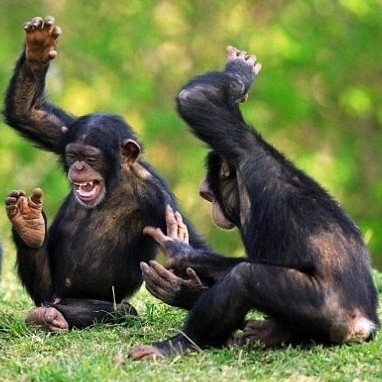News
13 Million Years Of Humour
It’s not uncommon to see babies playfully tease adults they know well. An eight-month-old might offer a toy but then withdraw it at the last minute, for example, or attempt to do something ‘naughty’ while smiling and watching the adult’s face for a reaction.
Babies of pre-linguistic age understand what adults expect in an interaction — and they get pleasure from defying those expectations. This sort of behaviour is thought to be the pre-lingual precursor to more sophisticated joking.
Now, a study in Proceedings of the Royal Society B reports very similar behaviours in four species of great ape. This work suggests that humour evolved in a common ancestor of us and these relatives, at least 13 million years ago.
While the teasing of human babies is clearly not as cognitively complex as adult humour, it’s thought to spring from the same basic social and conceptual building blocks. The finding that it also seems to be a feature of life for our four closest relatives suggests that our last common ancestor had the cognitive precursors for joking and humour, too.
Babies of pre-linguistic age understand what adults expect in an interaction — and they get pleasure from defying those expectations. This sort of behaviour is thought to be the pre-lingual precursor to more sophisticated joking.
Now, a study in Proceedings of the Royal Society B reports very similar behaviours in four species of great ape. This work suggests that humour evolved in a common ancestor of us and these relatives, at least 13 million years ago.
While the teasing of human babies is clearly not as cognitively complex as adult humour, it’s thought to spring from the same basic social and conceptual building blocks. The finding that it also seems to be a feature of life for our four closest relatives suggests that our last common ancestor had the cognitive precursors for joking and humour, too.



